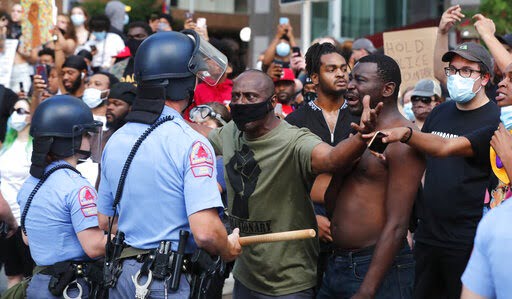
Riddle me this: What do the deaths of George Floyd and almost every other deadly police encounter have in common? Each death was preceded by a criminal suspect resisting arrest.
In the case of George Floyd, police officer Derek Chauvin and others tried to arrest Floyd. He resisted. He had to be subdued. Yes, the force was excessive. Indeed, Chauvin went to jail. But George Floyd would be alive today had he not resisted arrest.
It’s a familiar story. The cases of Michael Brown in Ferguson, Missouri and Eric Garner in New York City began and ended just like that of George Floyd. The problem is generic: The now deceased was involved in illegal activity. He became belligerent. An officer attempted an arrest. The suspect resisted. The suspect died.
Now, that does not mean that a police officer should have the right to act as a zealot, utilizing force that is clearly excessive. Nor does it mean that a suspect is necessarily responsible for his own death. Regardless of “fault,” and even while cities burn, both liberals and conservatives must recognize that a problem exists.
We must join in a solution.
Unfortunately, the current proposals only aggravate the problem. Should we “defund” the police; or, should we “defend’ them? Both approaches are “post mortem” They solve nothing.
Rather, we must focus on the “condition precedent.” In too many officer-involved shootings, the suspect was “resisting arrest.” If George Floyd had let Derick Chauvin cuff him, Minneapolis, Seattle and Portland would be livable today. Floyd would be alive. So, “the talk” needs to be given to all our children regardless of race. From middle school through high school, we should have that “talk.” We should teach that resisting arrest is both illegal and dangerous.
We must insist, and clearly message to all, “Obey the order of a police officer. Do it not because you think the cop is right, but because the street is no place to argue.” And. add to “the talk” a familiar warning. “Even if the police officer goes to jail because he was “dead wrong”, it does you no good if you are ‘dead right.’”
Our founders understood that even The King’s Constables could be wrong. Over-zealous law enforcement existed when our Constitution was ratified. It exists now. It is, in part. why our Bill of Rights exists. It is why arrests are only a prelude to an appearance before a neutral magistrate. It is why there is a right to a speedy trial. It is even why criminal suspects of even minor crimes, like the ones of which Floyd and Garner were accused, have the right to an attorney and reasonable bail. Moreover, administrative complaints are available, too.
Widening this approach, perhaps we should bar a suspect from suing for the use of excessive force if he, in what could be provable in court, resisted arrest. The word on the street would quickly spread, lessening even false claims of “police brutality.”
Conversely, as a check on law enforcement, the right of an officer to qualified immunity from civil and criminal misconduct should be based on the proper use and function of the officer’s body camera. Just as a police officer takes care of his weapon, he should wear and take care of his body camera. The weapon protects him from actual danger. The camera protects him from dangerous false accusations. In the possession of an honest and deducted public servant, both are equally important for the officer ‘s protection.
Resisting arrest should be a serious felony unto itself. It is too often a “throw away misdemeanor” that is dismissed in favor of the underlying crime for which the suspect was arrested. And, it also has a dark side. Too often law enforcement adds the charge without much merit. Too often “resisting” has been used to hide excessive force itself. But today, with fully functioning body cameras, that is no longer wide spread or practical.
If we want to reduce officer involved shootings, the “word on the street” must become “Don’t resist!” Complain to the judge. Don’t fight “the man” at the scene of an arrest. It rarely ends well.
Robert Levy lives in Southern Pines
